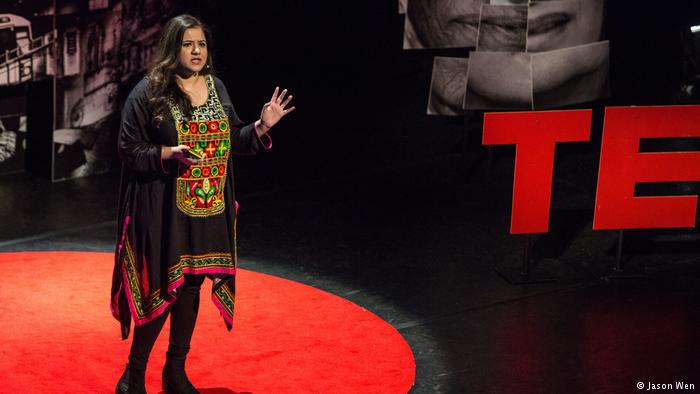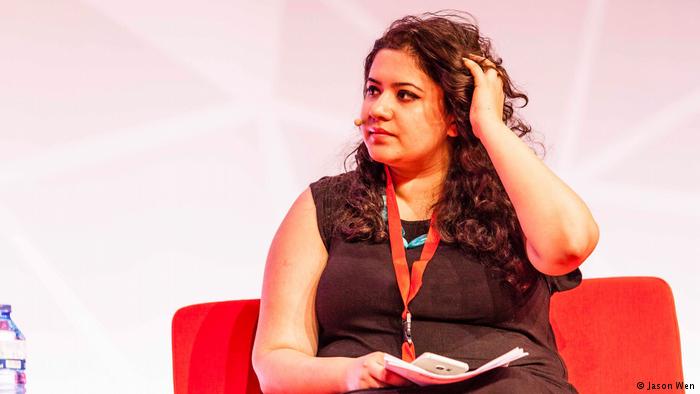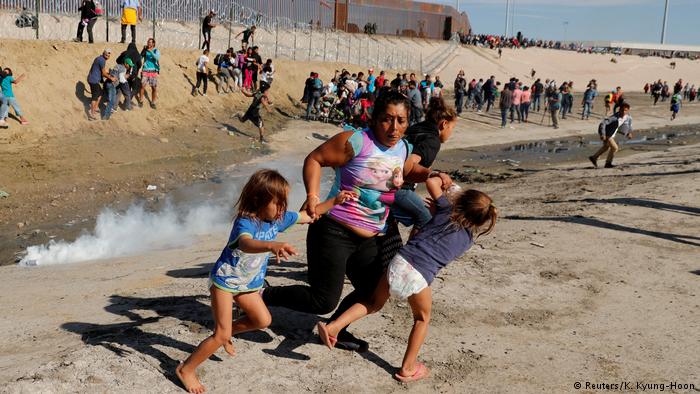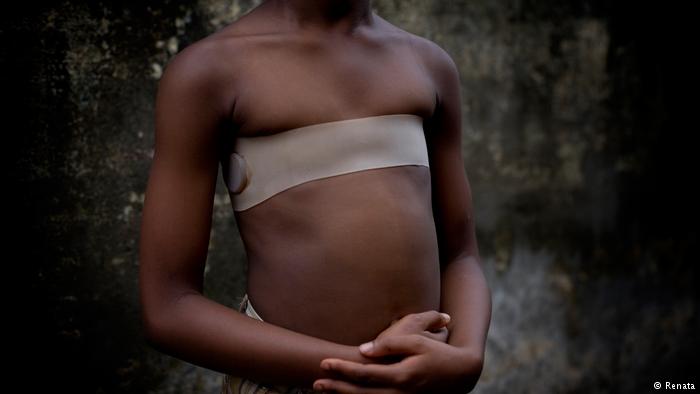Chayn: Helping Women through Information

Hera Hussain’s social enterprise Chayn is helping women in abusive relationships or environment to find the right information and support they need to take control of their lives. This initiative got her on MIT Technology Review’s Innovators list of Under 35, 2018, Forbes 30 under 30 – Social Entrepreneurship 2018.
Her initiative has also been awarded Microsoft Spark Award 2018, Points of Light UK 2018 and was also listed on The DOTS UK and Squarespace’s 100 creative change makers. Here is her interview with DW.
What pushed you to create this organization?
Chayn happened by chance. I always wanted to do something that made an impact against gender inequality, especially violence against women. After growing up in Pakistan, I moved to the UK for university and tried to think about social enterprise ideas that could support women facing abuse.
Nothing stuck but in 2012, I tried to help a friend in Pakistan escape her abusive marriage, and faced significant challenges in finding basic information – her rights, ways to cope with trauma, etc. The same year, I faced similar issues while helping another friend here in UK. The adverse effects of misogyny and patriarchy are global.
It was then I realized that if I could just put together critical information online in easy language, it could drastically change lives and solve real problems. That’s how Chayn started in 2013.
Chayn is a volunteer network tackling gender-based violence globally by creating intersectional resources on the web. We are run by a community of more than 400 volunteers from 15 countries, including many abuse survivors. Together, we create accessible and survivor-led solutions.
Our resources help women find answers to questions from “How do I get divorced?” “What are my rights under the child custody laws in my country?” “Am I depressed?” “Do I have anxiety?” “Do I have PTSD?” to “How can I build up my CV?”
At Chayn, we’ve understood that an intersectional approach is fundamental. Gender-based violence cannot be addressed without looking at other forms of oppression linked with it. That’s why all our resources are written and reviewed by survivors and experts from all over the world, making them applicable internationally.
.@herahussain accepts the Microsoft Spark Award, honoring her positive impact on the way we live and work. #Under30Summit
Presented by @Microsoft365 pic.twitter.com/4fKAlyIKo1— Forbes (@Forbes) September 6, 2018
–
How many women and from which regions have been helped by Chayn?
Since our inception in 2013, we have reached more than 200,000 people and garnered over 700,000 page views. We’re currently on track for a million page views this year. While our reach is global, we’ve a keen focus on UK, Pakistan, India, Italy, USA, Brazil, Russia, Canada, France, Germany, China, Lebanon & Afghanistan.
Chayn began with just a handful of people passionate about working towards a common cause. I am proud to say that we are shaping up to be a global organization, with all kinds of people who bring to the table a variety of skills, experiences, information, wisdom, and most importantly, passion. Through our success and failures, we’ve been able to show that a charity can scale with little resources and be inclusive by collaborating with survivors!
Why do you think there is a need to reach out to women through technology?
Like all aspects of life, the internet was also a male dominated arena. But this gap is decreasing, and women are now demanding their place as both creators and consumers of technology.
However, the online world presents women with both obstacles and new opportunities. More and more women are turning to the web to find answers to their questions and seek communities of support. If they come across blank pages or inaccurate information, it can be extremely demoralizing. It makes anyone feel alone.
By leveraging technology, women are now able to reach a wider audience on shoestring budget to understand what is happening to them and what to do about it. From finding sources of help to escape abuse, tackle mental health issues; find refuge to educate themselves and finding ways to earn money – there is no limit to how we can use appropriate and accessible technology to enable women to become creators of their own fate.
Additionally, a lot of women in difficult situations might not have the freedom to move about or even leave their houses at will. But, in a smartphone led world, they are highly likely to at least own a basic smartphone with internet connectivity.
Simply put – accessible and simple technology have already disrupted several traditional sectors and the charity sector is no different. Look at us! We work on Google Drive, communicate on Facebook, email through Front and use Skype for meetings. Simple, accessible and minimal cost, and all because of technology.

Lastly, how has been the response to your initiative? What do you want to do next?
We’re always very happy to receive feedback on our work. Our new chatbot Little Window piqued a lot of interest among our peers, and we’re now working on a new project to up skill women facing abuse.
My volunteers and I are overwhelmed by the support we receive from women across the world, who not only are using our resources but sharing it with others, and even emailing us to ask how they can help us. We really want Chayn to grow bigger and help remove this gender inequality that is harming us all.
Here are some quotes from survivors that were assisted by Chayn
“When my battle of abuse began, social media and search engines weren’t a big thing then, so I went into everything completely blindsided. If “How to Build Your Own Domestic Violence Case”, was available to me at that time, it would have made a world of a difference in not only empowering me with the knowledge and strength I needed to get through, but it would have done the same for millions of other women out there fighting the same battle. This is definitely a tool for survival”
“I read that how to build your own case without a lawyer yesterday. I wish I had read it ten years ago; it has better advice in it than I have been ever given by any solicitor or the police about collecting evidence. I could have had TONS of evidence. If anyone is in an abusive relationship or has just left one, I would advise a read of it.”
The interview was conducted by Beenish Javed.
–






